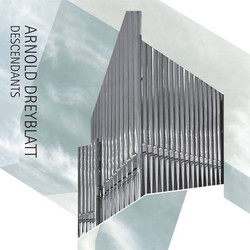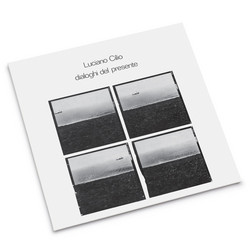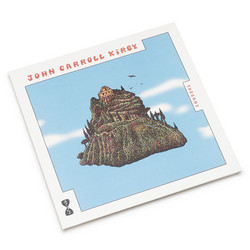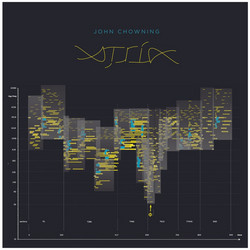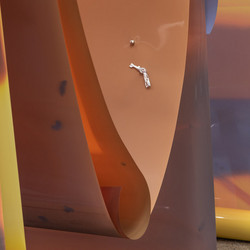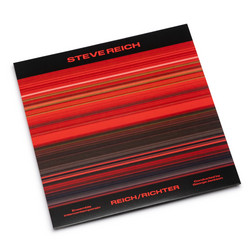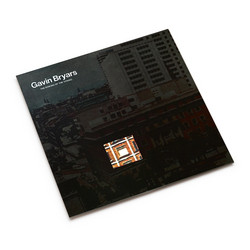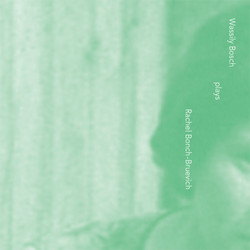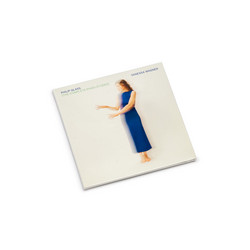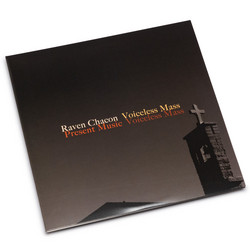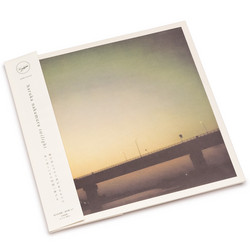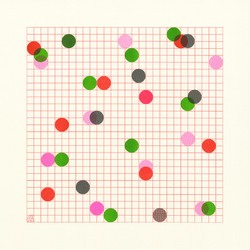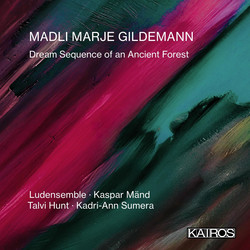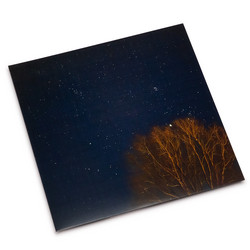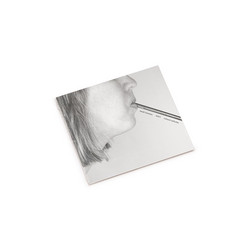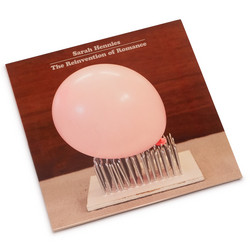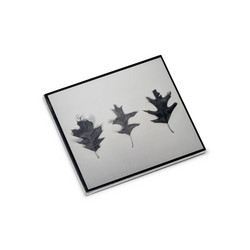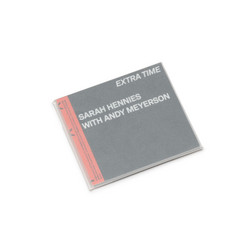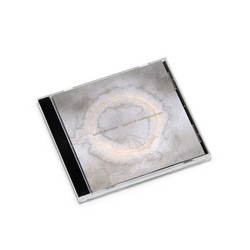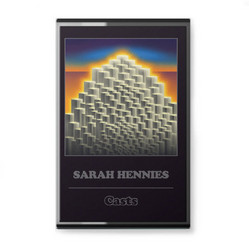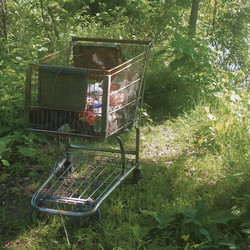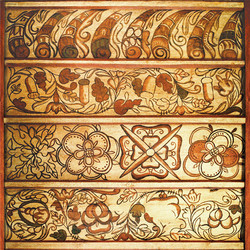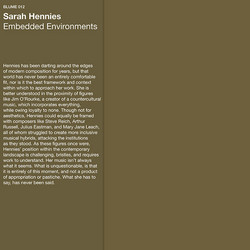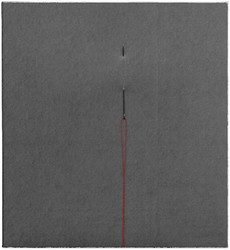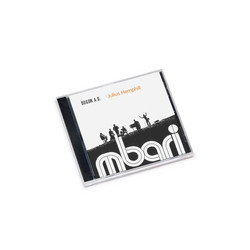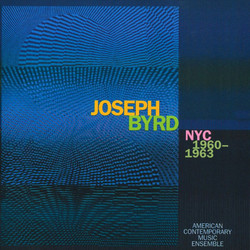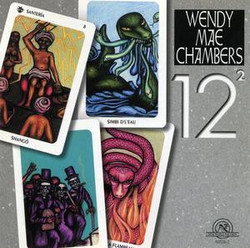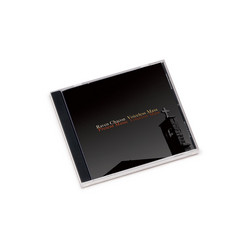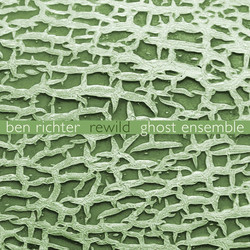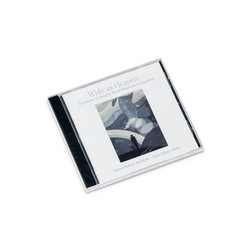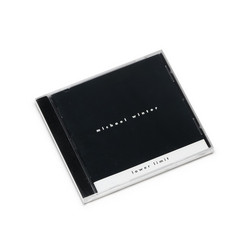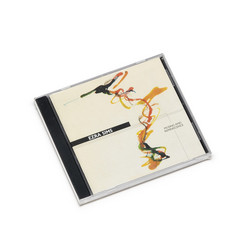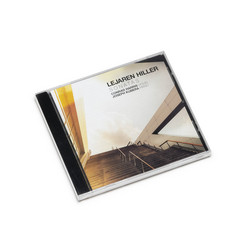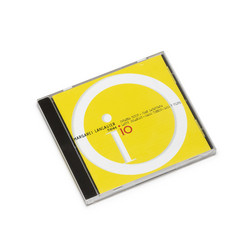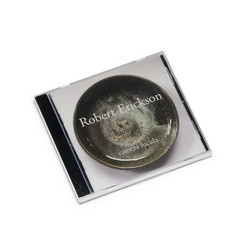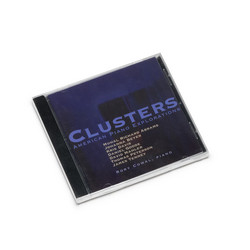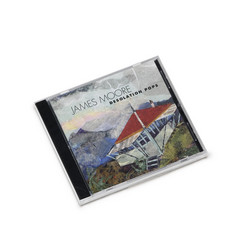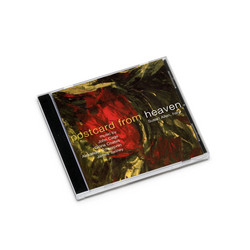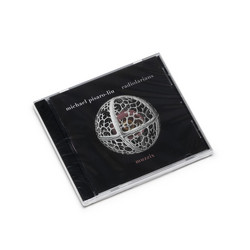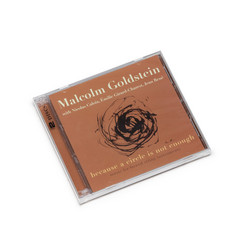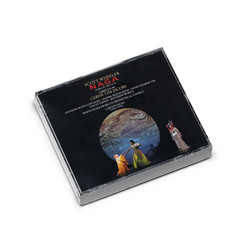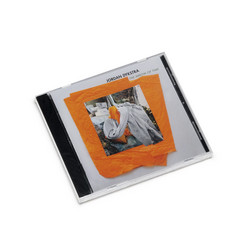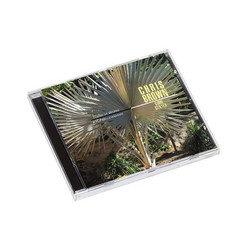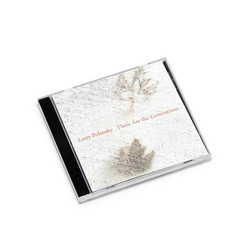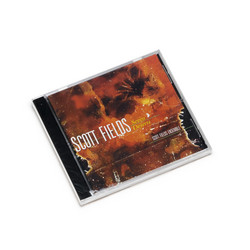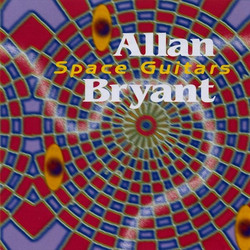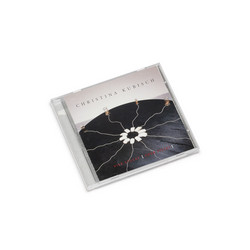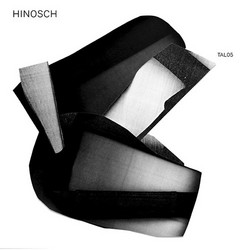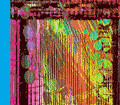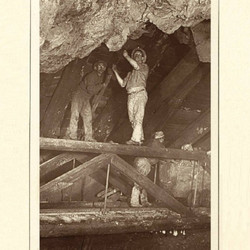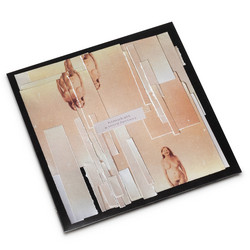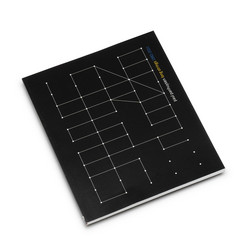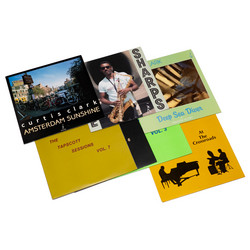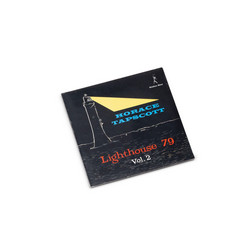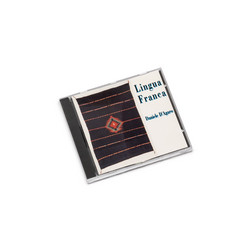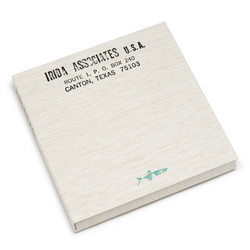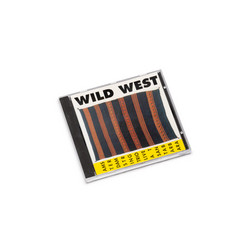While often under-recognized for the unique character of their contributions, even a cursory view of history of recorded music - peppered by figures like Milford Graves, William Hooker, William Winant, Art Blakey, Chris Corsano, Michael Ranta, Christopher Tree, Moondog, Max Neuhaus, and numerous others - draws the conclusion that percussionists, when working as composers, tend to produce music with a character - a distinct relationship and use of tonality, rhythm, counterpoint, and texture - that seems to be unreachable by artists from other backgrounds. Over the last decades or so, it is precisely for this reason that it’s been so wonderful to witness the ascending star of the American composer/percussionist Sarah Hennies. An artist of rare vision, sensitivity, focus, and power, following on the back of the brilliant highs of 2020’s “Spectral Malsconcities”, Hennies now returns to New World Records with “Motor Tapes”, her second release with the label and first full length to appear in four years. Comprising three new works, spanning a full two CDs, realized respectively by and in collaboration with three acclaimed ensembles - ensemble 0, Talea Ensemble, and Ensemble Dedalus - it’s a thrilling journey into Hennies' rich and complex world of sonority that unquestionably represents a high point in her already brilliant career.
Following her studies in percussion at the University of California-San Diego with Steven Schick and others, Sarah Hennies first emerged into the landscape of experimental music via the vehicle of Texas’ thriving scene, primarily producing a brilliant body of solo compositions and collaborations - in addition to stunning interpreter of works by composers like John Cage, Alvin Lucier, Jandek, Jürg Frey, Ellen Fullman, Radu Malfatti, Arnold Dreyblatt, and others - that positioned her at the centre of the consciousness of nearly everyone who encountered her performances and recorded output. Despite a slow, gathering rumble over the years, it wasn’t until Hennies relocation to upstate New York that she exploded into broader consciousness, producing a rapid fire suite of releases - “Gather & Release”, “Orienting Response”, “Everything Else”, “Embedded Environments”, “Sisters”, “Reservoir 1” - in three short years, as well as a starting number of live performances, ensemble works and commissions, and collaborations, rooted in her singular practice of explorations of musical, sociopolitical, and psychological issues including queer and trans identity, love, intimacy, psychoacoustics, and percussion.
“Motor Tapes”, Hennies second release working with New World Records and her first full length since 2020, comprises three new works - “Zeitgebers”, realised with the French Ensemble, ensemble O; “Clock Dies”, realised with the New York based Talea Ensemble, conducted by James Baker; and “Motor Tapes”, realised with the Toulouse based Ensemble Dedalus - stands among her most ambitious body of work to date, and extends across the duration of two CDs. All are, in distinct ways, connected to brain activity - specifically mood disorders and circadian rhythm - and represent an important step in the evolution of her work.
The first composition, “Zeitgebers” (2021), featuring field recordings by Marc Namblard and played by Stéphane & Julien Garin on percussion, almost borders on a kind of radically experimental, off-kilter vision of “fourth world’ sensibilities, with pastoral sounds and textures of the natural world and birdsong moving from states of unkempt abstraction toward cycling rhythmic loops, before being threaded by the rattles and thuds of percussive interventions and beating bells, sculpting a remarkable dialog between two tangibly distinct sonorous words across the piece’s length.
The second piece on the first disc of “Motor Tapes” is “Clock Dies”, realised by the Talea Ensemble - Barry J. Crawford on flute, Marianne Gythfeldt on clarinet, Stephen Gosling on piano, Alex Lipowski and Matthew Gold on percussion; Karen Kim on violin, Hannah Levinson on viola, Chris Gross on cello - working under the baton of James Baker, expands the instrumental range and palette considerably. In the album’s liner notes, Hennies offers illumination: «These works do signal a transformation. Up until “Clock Dies”, for instance, every piece I had written involved a stopwatch. But Talea Ensemble wanted a work with a conductor, and so “Clock Dies” was the first piece I made where I thought, “Let’s see if I can make chamber music.” So “Clock Dies” is through-composed; of course there’s lots of repetition, there’s a form with sections and climaxes—things happen. There’s a more traditional kind of contrast in “Clock Dies” and really in all three of these pieces. But “Clock Dies” specifically was the first piece where I challenged myself in a practical way to see if I could make “normal” music.» Covering a remarkable amount of ground over the course of its roughly half hour duration, Hennies' use of the notion of normative risks being slightly misleading. The piece feels anything but; laden with tension, palpable ambition, and polarities of mood, it passes through movements defined by an almost aggressive sense of tonal and textural punctuation, tightly wound harmonics of multi-instrumental drone, moments of freneticism, and airy and restrained, melancholic interplay between the musicians.
The second disc is completely occupied by the title piece, “Motor Tapes”, realised with Ensemble Dedalus, with artistic director Didier Aschour on guitar, Amélie Berson on flute, Cyprien Busolini on viola, Eric Chalan on double bass, Denis Chouillet on piano, Stéphane Garin on percussion, Judith Hamann on cello,Thierry Madiot on trombone, Pierre-Stéphane Meugé on saxophone, Christian Pruvost on trumpet, Silvia Tarozzi on violin, and Fabrice Villard on clarinet. Hennies goes on to explain in the liner notes that: «“Motor Tapes” is … well, it came about in a similarly practical way, where because of when the commission [from Ensemble Dedalus] came and where it was being played, I had a long time to make it. And I really, really wanted to challenge myself to make something with a lot of detail, to work harder on something than I had in the past. There’s a Word-doc outline of “Motor Tapes” that’s pages long because it got so complicated. And finishing the last 20% was so challenging; it had become so unwieldy that I had to make a to-do list of tasks because I couldn’t view it as a totality anymore. And now that it’s done and I can see it as a whole, there’s a very clear order of events, a script, it follows a very birth-to-death trajectory …». This description of the piece’s becoming feels tangibly mirrored in its auditory experience. Beginning with a cycle of rapid fire beats, it rapidly progresses into a field of increasingly complex textural and rhythmic arrangements, into which the composer introduces a gathering storm of tonality ebbing and flowing across each movement with shifts between and tension and release, culminating as a work of such sprawling scope that it feels impossible to fully take on one listen alone.
Yet another high water mark in Sarah Hennies’ already striking career, closing the achingly long four year wait from her last release, “Motor Tapes” - comprising three new works, across two CDs, realized in collaboration with ensemble 0, Talea Ensemble, and Ensemble Dedalus - recounts her in our minds as one of the most important, talented, and singular composer working today. Issued by New World as a beautifully produced double CD, with liner notes exploring each piece in depth, these are unquestionably heights of contemporary experimental chamber music and shouldn’t, at any cost, be missed.
ensemble 0: Stéphane & Julien Garin, percussion; Talea Ensemble: James Baker, conductor; Ensemble Dedalus: Didier Aschour, guitar and artistic direction
All works published by the composer.
Digital mastering: Paul Zinman, SoundByte Productions Inc., NYC
Photos by Sarah Hennies
Design: Jim Fox
